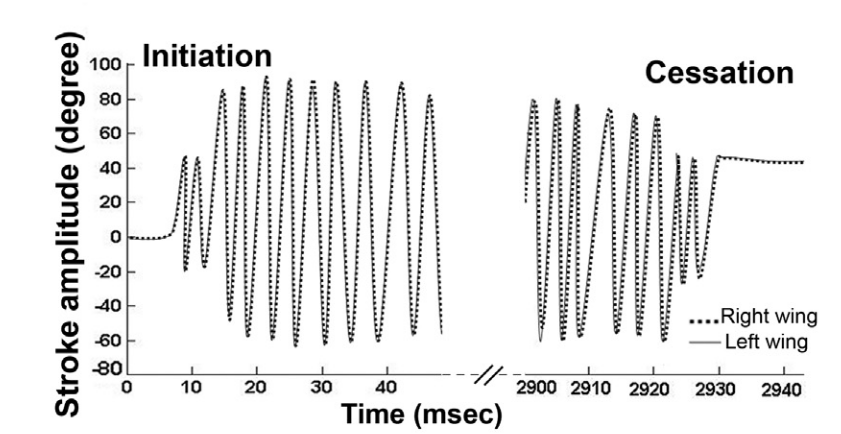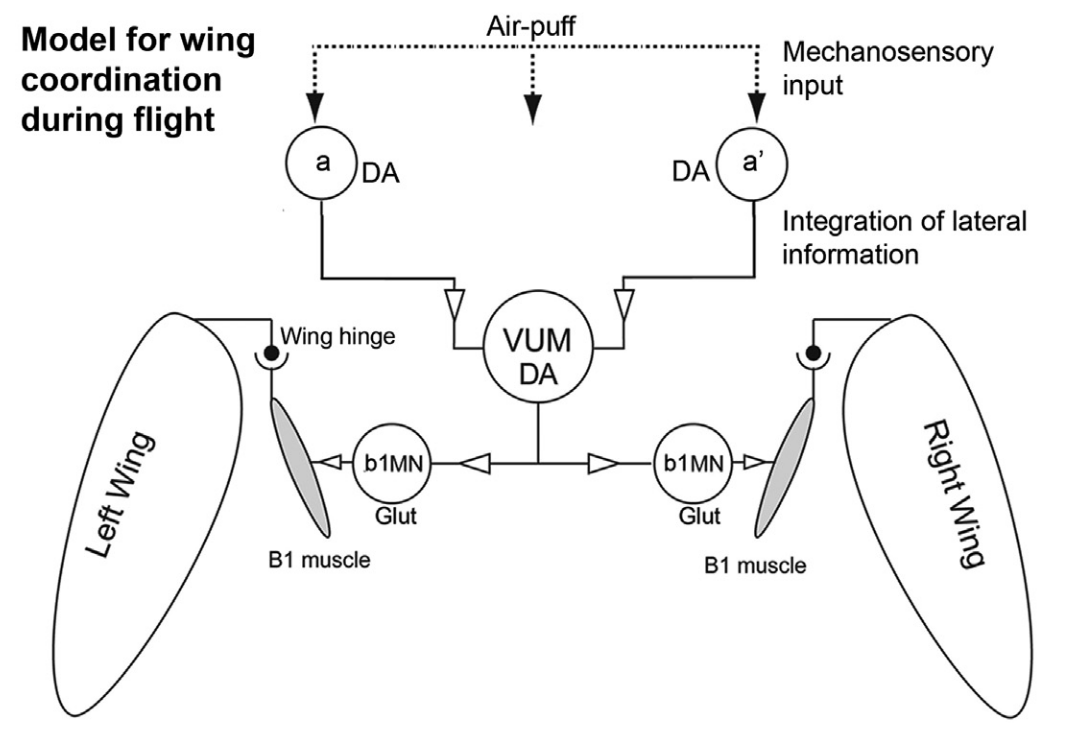Neural Control of Wing Coordination in Flies
authors: Sufia Sadaf, O. Venkateswara Reddy, Sanjay P. Sane, Gaiti Hasan
doi: 10.1016/j.cub.2014.10.069
CITATION
Sadaf, S., Reddy, O. V., Sane, S. P., & Hasan, G. (2015). Neural Control of Wing Coordination in Flies. Current Biology, 25(1), 80–86. https://doi.org/10.1016/j.cub.2014.10.069
ABSTRACT
fleeting notes
- onset of flight, there is rapid multisensory integration
- need to engage the wing hinges of both wings in order to have coordinated takeoff.
- wings that mediate bilateral coordination of wing movements to syncrhonize wing engagements are not known
- wing coordination could be directly modulated via bilateral sensory inputs to motor neurons of steering muscles
- they used calcium imaging and found 3 flight activated central DA interneurons in the VNC which connect and activate motor neurons and steering flight muscles.
- activity is context specific.
- bilateral wing engagement for flight requires these neurons but they are not needed during courtship
-
serotonin, octopamine and dopamine all implicated in the neuromodulation of flight
-
flight bouts from 30 to 300 seconds
-
flight evoked response in 3 DA neurons
three dopamine neurons in the VNC coordinate wings during flight
-
found only 3 neurons labeled by TH>CaLexA when staining for GFP 8 hr after flight
- this seems wildly specific to me, no other TH neurons were labeled??
- how does CaLexA work?
- no brain neurons labeled — is flight intrinsically rewarding for flies - how would that get to brain because they fly for hours in close loop?
-
Shibire - prevents recycling of synaptic vesicles because of a temperature sensitive dynamic mutant
-
Kir2.1 - inward rectifying potassium channel
-
flight tested with the cylinder drop assay
-
DLMs receive input from motor nuerons at 10Hz
-
TH-aa’ required for flight
-
wings have synchrony during both initiation and cessation of flight
- they report that wings stay extended for 30s at cessation before fully folding in (im assuming for spontaneous flight)
-
the dopamine neurons synapse onto b1 direct flight muscle motor neurons
-
for flight cessation mechanisms does toe touching stop courtship?
-
sexually dimorphic neurons that connect to the wing?

